
Isidore Marie Auguste François Xavier Comte was a French philosopher, mathematician and writer who formulated the doctrine of positivism. He is often regarded as the first philosopher of science in the modern sense of the term. Comte's ideas were also fundamental to the development of sociology; indeed, he invented the term and treated that discipline as the crowning achievement of the sciences.

Consensus decision-making or consensus process are group decision-making processes in which participants develop and decide on proposals with the aim, or requirement, of acceptance by all. The focus on establishing agreement of at least the majority or the supermajority and avoiding unproductive opinion differentiates consensus from unanimity, which requires all participants to support a decision.
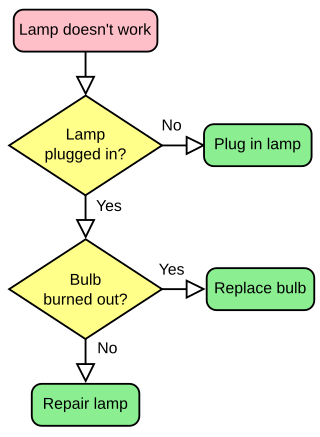
In psychology, decision-making is regarded as the cognitive process resulting in the selection of a belief or a course of action among several possible alternative options. It could be either rational or irrational. The decision-making process is a reasoning process based on assumptions of values, preferences and beliefs of the decision-maker. Every decision-making process produces a final choice, which may or may not prompt action.
The Movement for a New Society (MNS) was a U.S.-based network of social activist collectives, committed to the principles of nonviolence, who played a key role in social movements of the 1970s and 1980s.
Organizational behavior or organisational behavior is the: "study of human behavior in organizational settings, the interface between human behavior and the organization, and the organization itself". Organizational behavioral research can be categorized in at least three ways:
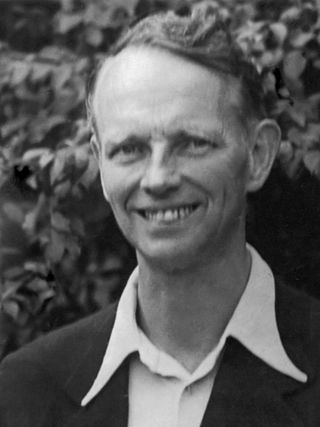
Cornelis "Kees" Boeke was a Dutch reformist educator, Quaker missionary and pacifist. He is best known for his popular essay/book Cosmic View (1957) which presents a seminal view of the universe, from the galactic to the microscopic scale, and which inspired several films.
Sociocracy is a theory of governance that seeks to create psychologically safe environments and productive organizations. It draws on the use of consent, rather than majority voting, in discussion and decision-making by people who have a shared goal or work process.
Design thinking refers to the set of cognitive, strategic and practical procedures used by designers in the process of designing, and to the body of knowledge that has been developed about how people reason when engaging with design problems.
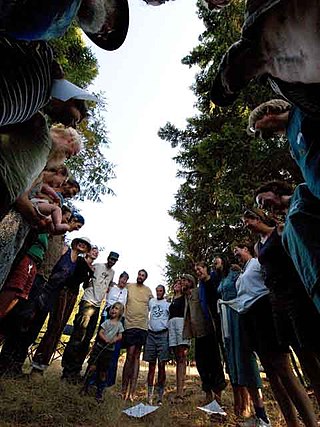
Diana Leafe Christian is an author, former editor of Communities magazine, and nationwide speaker and workshop presenter on starting new ecovillages, on sustainability, on building communities, and on governance by sociocracy. She lives in an off-grid homestead at Earthaven Ecovillage in the Blue Ridge Mountains of North Carolina, U.S. She has said that living in an intentional community "is the longest, most expensive, personal growth workshop you will ever take."
The Zen Peacemakers is a diverse network of socially engaged Buddhists, currently including the formal structures of the Zen Peacemakers International, the Zen Peacemaker Order and the Zen Peacemaker Circles, many affiliated individuals and groups, and communities formed by Dharma Successors of Roshi Bernie Glassman. It was founded by Bernie Glassman and his second wife Sandra Jishu Holmes in 1996, as a means of continuing the work begun with the Greyston Foundation in 1980 of expanding Zen practice into larger spheres of influence such as social services, business and ecology but with a greater emphasis on peace work. Eve Marko, Bernie Glassman's third wife, is a founding teacher of the Zen Peacemaker Order. Zen Peacemakers have developed from the White Plum Asanga lineage of Taizan Maezumi.
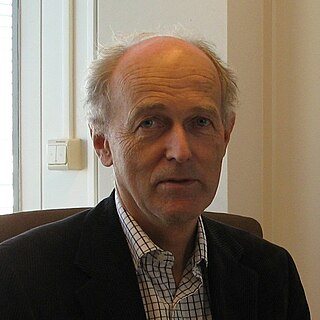
Jean Leonardus Gerardus (Jan) Dietz is a Dutch Information systems researcher, Emeritus Professor of Information Systems Design, and part-time Professor of Enterprise Engineering at the Delft University of Technology, known for the development of the Design & Engineering Methodology for Organizations. and his work on enterprise ontology.
Henk Gerard Sol is a Dutch organizational theorist and Emeritus Professor of Business Engineering and ICT at Groningen University. His research focuses on the development of services enabled by ICT, management information systems, decision enhancement and telematics.
Robust decision-making (RDM) is an iterative decision analytics framework that aims to help identify potential robust strategies, characterize the vulnerabilities of such strategies, and evaluate the tradeoffs among them. RDM focuses on informing decisions under conditions of what is called "deep uncertainty", that is, conditions where the parties to a decision do not know or do not agree on the system models relating actions to consequences or the prior probability distributions for the key input parameters to those models.
Henricus Joannes (Henk) van Dongen was a Dutch organizational theorist, policy advisor, and University Professor at the Rotterdam School of Management and one of its founders. He is noted for introducing notions of process thinking and social integration into (Dutch) organizational studies and practice.

Lodewijk Meyer was a Dutch physician, classical scholar, translator, lexicographer, and playwright. He was a radical intellectual and one of the more prominent members of the circle around the philosopher Benedictus de Spinoza.

The Unitarian Universalist Church of Berkeley (UUCB) was founded as the First Unitarian Church of Berkeley in Berkeley, California in 1891 and moved to Kensington, California in 1961. It is one of the oldest and largest Unitarian Universalist churches on the West Coast and has had many distinguished members, including numerous professors at the University of California, Berkeley. It is highly regarded for its music program as well as its series of renowned ministers and its many avenues for spiritual growth, learning, and social action.
Holacracy is a method of decentralized management and organizational governance, which claims to distribute authority and decision-making through a holarchy of self-organizing teams rather than being vested in a management hierarchy. Holacracy has been adopted by for-profit and non-profit organizations in several countries. This can be seen as a greater movement within organisational design to cope with increasing complex social environments, that promises a greater degree of transparency, effectiveness and agility.
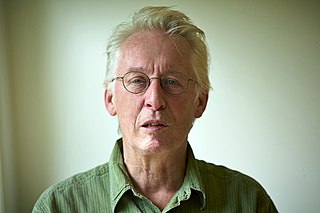
Walter van Hauwe is a Dutch recorder player.

The Quaker business method or Quaker decision-making is a form of group decision-making and discernment used by Quakers, or 'members of the Religious Society of Friends', to organise their religious affairs. It is primarily carried out in meetings for worship for business, which are regular gatherings where minutes are drafted, to record collective decisions.

Beatrice Boeke-Cadbury was an English-Dutch social activist, educator, and Quaker missionary. For her work educating and hiding Jewish children during the Holocaust, she was posthumously recognized as one of the Righteous Among the Nations.











